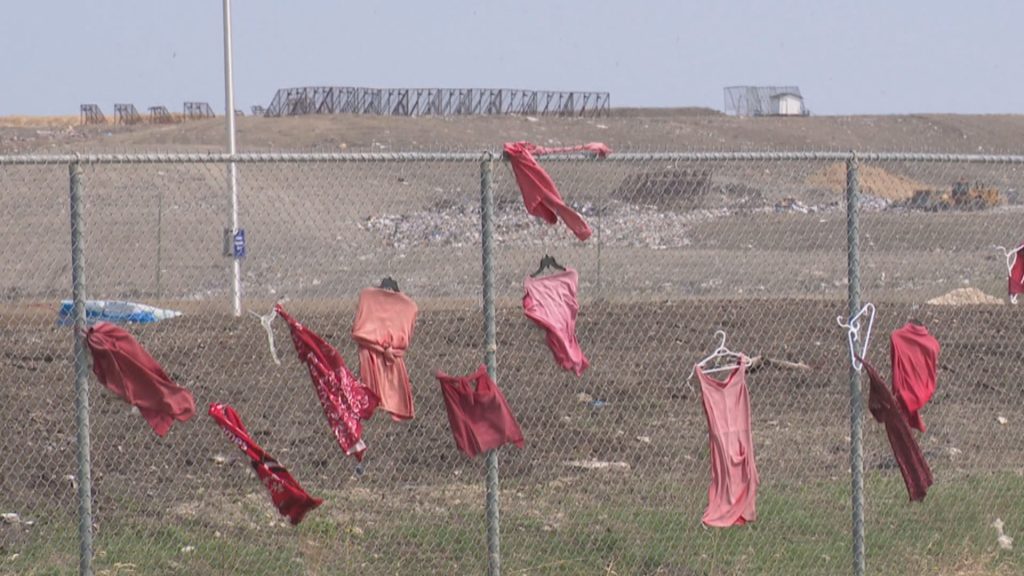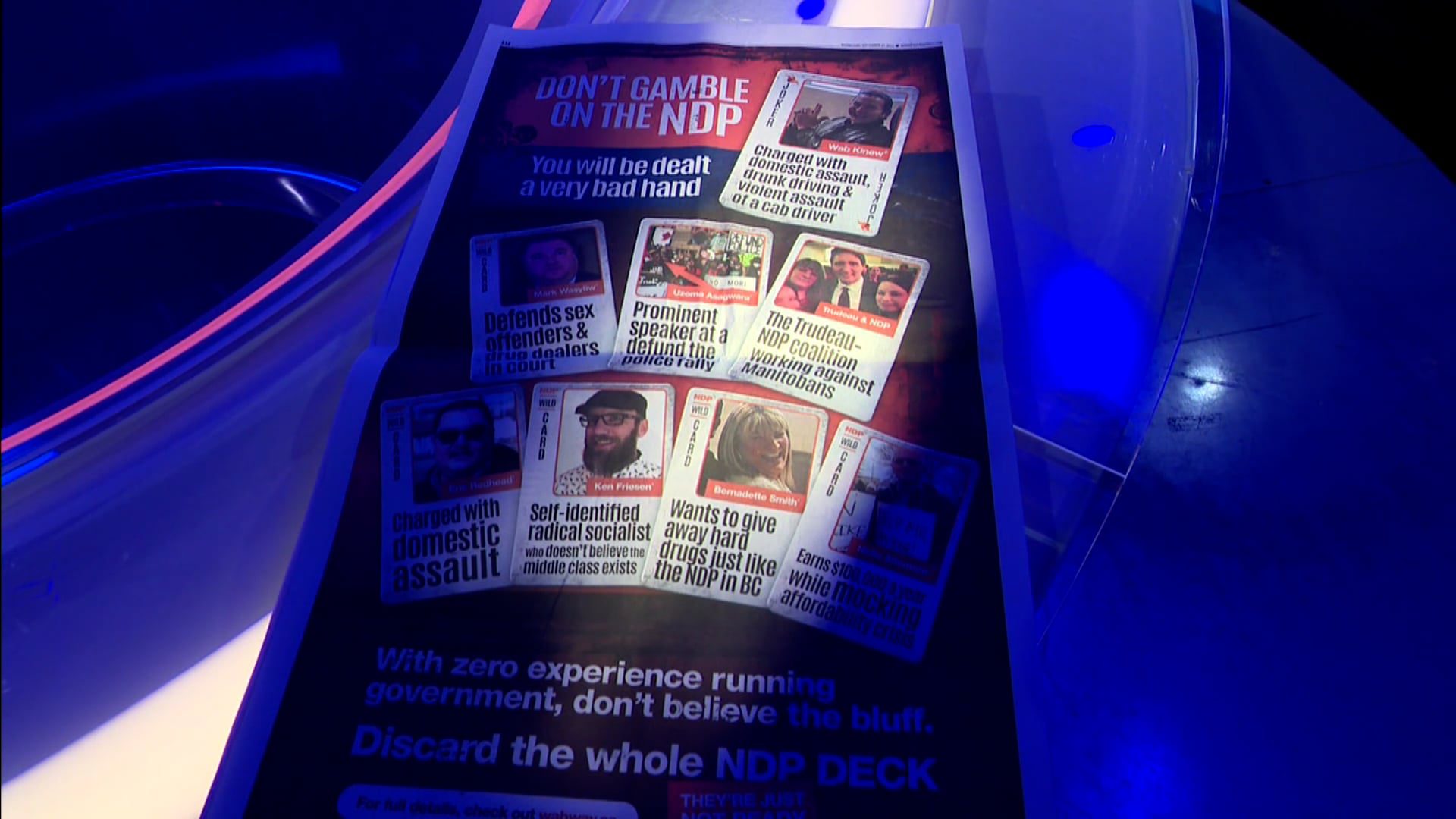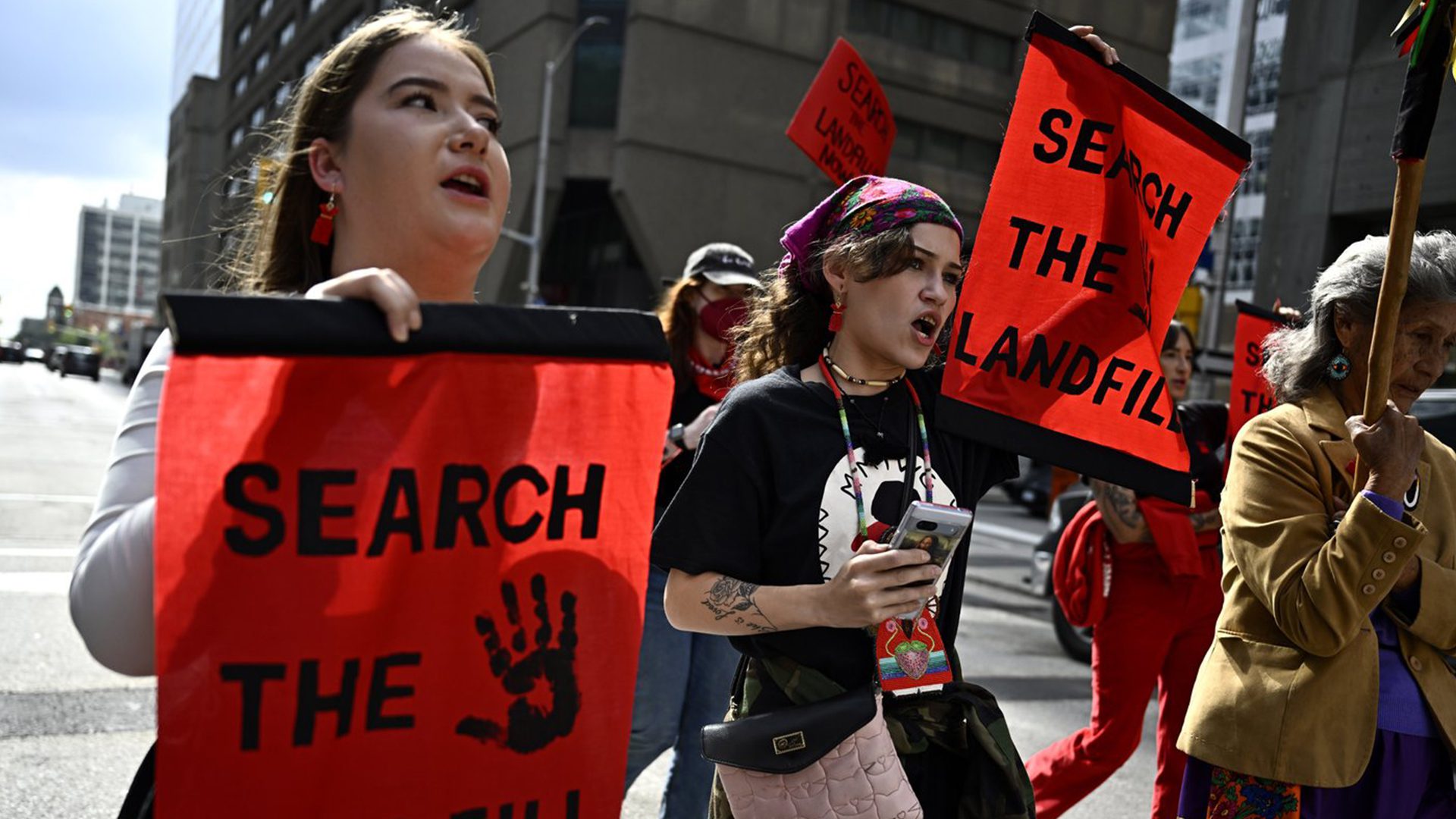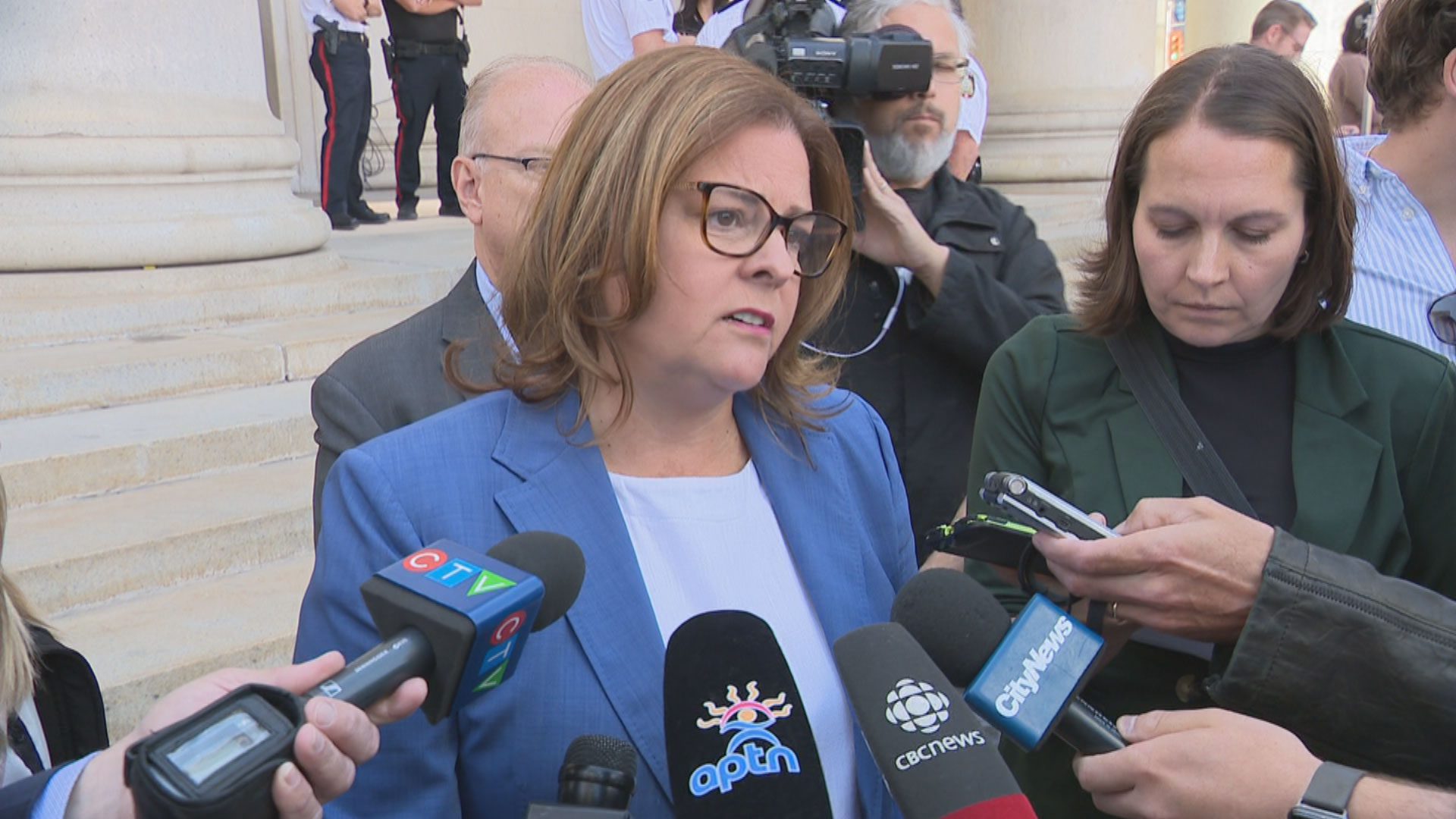
Red dresses hang on the fence surrounding Winnipeg's Brady Road Landfill. Photo: APTN file
A lawyer for accused serial killer Jeremy Skibicki revealed Wednesday his legal team plans to mount an NCR defence, which means not criminally responsible due to a mental disorder.
It’s a controversial defence that could see the accused serve no prison time. His sentence would be in the hands of a provincial review board and potentially include treatment and residential care in a psychiatric facility.
Alyssa Munce mentioned the strategy as part of her closing argument on a motion to have the high-profile murder trial heard by judge alone.
She argued it was fundamental to the accused’s right to a fair trial for the case to be heard by a judge, who is presumed to be unbiased, and not jurors potentially biased by extensive pre-trial news coverage.
Skibicki, 37, has pleaded not guilty to four counts of first-degree murder after Winnipeg police charged him in connection with the 2022 killings of Morgan Harris, Marcedes Myran, Rebecca Contois and an unidentified woman given the Ojibwe spirit name Buffalo Woman by the Indigenous community.
Police have said the partial remains of only one victim – Contois – were recovered from a city landfill. They have not searched for the remains of the others.
The case of the missing and murdered Indigenous women has generated headlines across the country and even became part of the Manitoba 2023 election campaign.

The Manitoba Progressive Conservative party campaigned on its promise not to search a landfill for the possible remains of three Indigenous women police said were murdered by an alleged serial killer. Photo illustration: APTN file
Chief Justice Glenn Joyal of Manitoba Court of King’s Bench said he would give his decision Friday on “the type of trial this is going to be.”
Jurors were selected last week and told they would begin hearing evidence on May 8.
Experts for the latest defence motion to throw out the jury testified this week about the results of a public opinion poll and whether the intense national media coverage leading up to the trial contaminated jurors’ views.
The online poll – sponsored by the defence – asked nearly 1,000 people about the accused and the NCR defence, said Munce. Prospective jurors were also questioned about NCR, she added.
“Ninety per cent (of respondents) knew Skibicki’s name,” she said, noting they also shared their thoughts on whether he was innocent or guilty. The words “serial killer” were mentioned in 80 of 405 articles produced so far, according to an analysis provided by the defence.
“This is unprecedented,” Munce said.

Joyal suggested having a jury could generate more public interest in a trial.
“This is an exceptional case,” he told the lawyers.
But Munce cautioned public interest shouldn’t trump a defendant’s right to a fair trial.
“The accused hasn’t requested a jury trial,” she noted.
When police first charged Skibicki with one count of first-degree murder on Dec. 1, 2022, they said they found parts of Contois, 24, in the city-owned Brady Road landfill.
But when they added the charges for Myran, 26, Harris, 39, and Buffalo Woman, who is believed to have been in her 20s, they had refused to search for their remains citing safety and other concerns.
That decision sparked angry rallies, the establishment of protest camps, and legal and human rights challenges that were widely covered by the media.

Former Manitoba premier Heather Stefanson apologized for election ads promoting her party’s decision not to search a landfill for the remains of Indigenous women. Photo: APTN file
Crown attorney Charles Murray, with the constitutional law branch of Manitoba Justice, suggested the media coverage put the developments into a social context.
“The articles aren’t about Skibicki,” he told court, “they’re about (missing and murdered) Indigenous women, landfill searches” and the victims.
The crimes and their impact on society is why the public has a role in the criminal justice system, Murray added.
“The jury is the conscience of the public,” he said.









